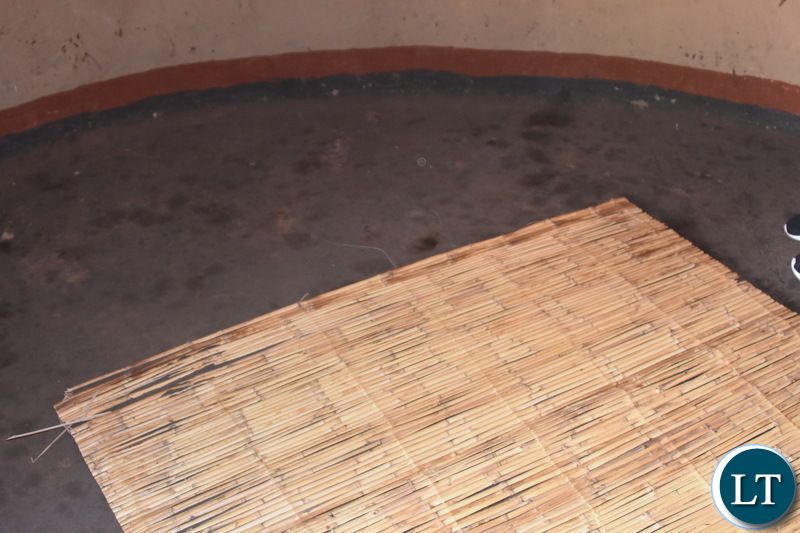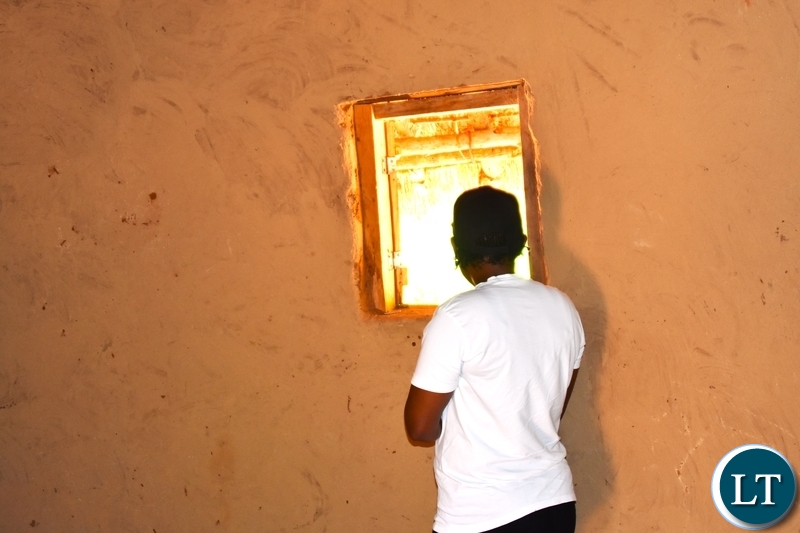By Mwizenge S. Tembo, Ph. D.
If you live in town and enjoy the Western world culture, you have seen many Hollywood romantic movies and read romantic novels, you probably believe one thing: the best way to express love and romantic feelings during this coming Valentine’s Day is through flowers, kisses, a card, a letter, text message, the cell phone, very expensive ring, and especially a romantic dinner with wine by candlelight. You might also believe that love and romance may not have existed traditionally in rural Zambia and other non-Western cultures back in the old days.
After all, aren’t marriages in these rural areas and non-Western cultures miserable and practically between strangers since they are arranged? Nothing could be further from the truth. Not only did single young men and women have choices, romantic love often bloomed. The only exception might be that the romantic love started and was expressed differently from the present Westernized lifestyle.
 Take, for example, among the Tumbuka tribe of Eastern Zambia. The single young women in the village were known as mbeta and they all slept in the nthanganeni; a hut for young single women. On the other hand, young single men were known as jaha and they slept in the mphala; a hut for single young men. When the time to seek a marriage partner came, a jaha (young man) will dress at his best and walk often for kilometers to a village where he knew there was a particular mbeta; young woman he either knew or has heard about through the grape vine to be attractive and eligible for marriage.
Take, for example, among the Tumbuka tribe of Eastern Zambia. The single young women in the village were known as mbeta and they all slept in the nthanganeni; a hut for young single women. On the other hand, young single men were known as jaha and they slept in the mphala; a hut for single young men. When the time to seek a marriage partner came, a jaha (young man) will dress at his best and walk often for kilometers to a village where he knew there was a particular mbeta; young woman he either knew or has heard about through the grape vine to be attractive and eligible for marriage.
Once he arrived at the village, he was shown the nthanganeni (single women’s hut) and word quickly rippled through the village that he had come, say for Tryness. There was tremendous excitement in the village as children were sent and gleefully scrambled to fetch Tryness who might be bathing and drawing water at the river. Once Tryness learned that there was a Jaha waiting for her in the nthanganeni, she went bonkers with sheer excitement and anticipation. How is she going to do her hair? What dress will she wear? Is he handsome? Will she like him?

Once the two saw each other and if their chemistry was just right, it might have been love at first sight in which case electrical sparks will fly. But quite often they may have found there was no mutual attraction and either one of them could back off. But if there was attraction and she accepted the proposal, the period of romantic love and courtship begins. This is the period of romantic love which is full of drama and has many legendary stories among the Tumbuka people.
Because the two lovers cannot stand being away from each other, there have been kusomphola (elopements). Depending on the distance between the villages, he might visit her practically every day during the period of courtship. The two of them are allowed to spend hours alone in the nthanganeni (single young women’s hut). They enjoy and experience kufwasa. Meals, often of nshima with delicious chicken, were served to the two lovers by the woman’s family. Since any sex was traditionally strictly taboo before marriage, the romance was even more intense and blissful.
Stories say that lovers stare and gaze into each other’s eyes lovingly, smile, act silly with one another, and playfully feed each other. Passers-by could hear loud hearty laughter, conversations in low tones, the woman giggling, and silence. Giggling, noisy, and snoopy kids were shooed away from outside the hut so that the couple could have privacy and kufwasa. When the man departed later in the evening, she escorted him in the dark.
The lovers might have exchanged chikole; a personal possession as a symbol of commitment and love for one another. The woman might have given him her bangle, bracelet, her ear ring, her scarf, and perhaps traditionally most intimate, one strand of brightly colored beads from inside her waist or mkanda. The man might give her his white well pressed handkerchief, or a chithumwa (small charm or love object he made he might always carry in his pocket)

Among the Tumbuka, romantically involved young women were known to become absent minded, to stare blankly into space as they went about doing chores, to lose appetite, to be tearful and lonesome. Some young women composed romantic songs dedicated to their lover. The women sung the song while pounding maize with a pestle and mortar. Young men in love might sing the composed song during the traditional dance such as mganda and fwemba. One such a song by a young man is featured in my novel The Bridge when the novel’s two romantic characters visit the village.
Young men in love might be miserable and restless everyday and can’t wait to walk to the other village to visit their lover. They might persuade their lover to skip the traditional stalled marriage and wedding arrangements and instead elope in defiance of custom, elders, and community. The romantic lovers were constantly teased by their friends and relatives.
The author is Emeritus Professor of Sociology and Author of Internationally acclaimed Romantic Novel “The Bridge”.



This appears to be extracts from Yizenge Chondoka’s writings on “A history of the Tumbuka & Senga in Chama District, 1470 to 1900” and commonly available in book stores …
Great stuff Mwizenge Tembo – such are rich cultural values that encapsulate an identity of Tumbuka and Senga people of Eastern province.
Many Tumbukas practice polygamy, hope the book also touched on this aspect with regard to romance.
Gotta love our rich Tumbuka culture,our multilingual skills and that we’re the least tribalistic people in Zambia.And yes,we’re in three countries.
Great information here
Easterners are such cool people with vast cultural riches. Great write-up there ,we welcome such pieces for all 73 Zambian tribes instead of self centered politicians coverage all the time.
tumbuka hmm..very primitive tribe indeed, a pROF. WRITING UTISHIMI? IF IT WAS PERSON LIKE ME, WOULDNT SINK WITH BOAT SO LOW
This is beautiful akulu. We need such type of writing to enhance our knowledge. I have liked it in that it has disclosed our values, as Tumbukas. I encourage you to explore other tribes. We need to know our culture in all tribes. Politics and politicians have divided us. Tisambizyani umo mitundu yithu ikukhalira. Fumbo lane ndakuti. Ka buku linu ningalisangankhu?
Comments are closed.